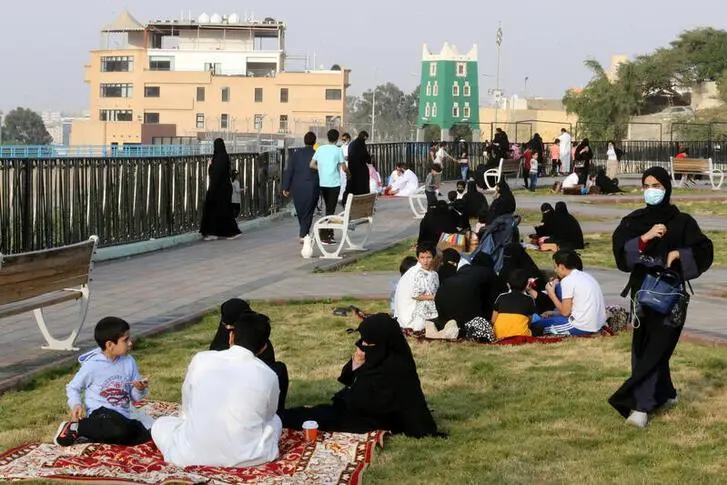PHOTO
Dr. Tawfiq Al-Rabiah, the Saudi minister of health, spoke out on Thursday after 253 new cases were reported in the Kingdom.
“We have faced a great challenge together,” Al-Rabiah posted on Twitter. “We have made strides and it had a place in our memory. Please don’t allow this challenge to come again.”
The minister’s message was a strong reminder of warnings he made at the beginning of the pandemic.
“We are living in a major challenge as COVID-19 is now spreading around the world rapidly,” Al-Rabiah said in a video clip on March 15, 2020. “Our leadership has taken a set of precautions to protect you, and the challenge is great and your cooperation is important. So, from the heart, I ask you for your cooperation.”
Meanwhile, the Health Ministry warned of seven possible side effects from the second dose of the COVID-19 vaccine and how to deal with the symptoms.
“In general, the side effects that may appear include tiredness, headache, sore throat, muscle pain, malaise, muscle aches, fever and chills,” the ministry said in response to a question from a vaccinated patient.
The Saudi Center for Disease Prevention and Control suggested that people dealing with possible side effects could place a cold compress on the injection site to relieve pain, redness and swelling. Paracetamol can be used to relieve headache, muscle pain, fever and tiredness.
Saudi Arabia reported 267 new COVID-19 cases on Friday, bringing the total number of people who have contracted the disease to 367,543. There are 2,169 active cases, while 355 are in critical condition.
According to the Health Ministry, Riyadh recorded 89 new cases, followed by the Eastern Province (70), Makkah (49) and Madinah (six).
Two more COVID-19-related deaths were reported in the past 24 hours, bringing the death toll to 6,368.
FASTFACTS
367,543 Total cases
359,006 Recoveries
6,368 Deaths
2,169 Active cases
355 Critical condition
In addition, 253 patients recovered from the disease, raising the total to 359,006 recoveries nationwide. Saudi Arabia has conducted 12.2 million PCR tests so far, with 48,445 in the past 24 hours.
Meanwhile, Saudi Arabia is to extend its travel restriction period and shift the date for reopening the Kingdom’s borders from March 31 to May 17 due to delays in delivery of coronavirus disease (COVID-19) vaccines, authorities said on Friday.
The Ministry of Interior announcement came just weeks after the Saudi government penciled in the end of March to reopen the country’s land, sea, and air entry points for travel following a drop in the number of COVID-19 cases.
On Jan. 8, it had also set March 31 as the date to lift the suspension of international flights.
The latest decision was based on a statement by the Saudi health minister revealing that COVID-19 vaccine manufacturers had failed to meet deadlines for the delivery of contracted batches. A second wave of the virus spreading rapidly around the world, had also influenced the move, the ministry added.
Before lifting travel restrictions for Saudis and reopening borders, the Kingdom was aiming to inoculate most of the population against the virus while in the process keeping infection rates to a minimum.
Saudi Arabia suspended flights in December after the emergence of a new and more infectious variant of COVID-19.
Physician at Riyadh’s King Abdullah Specialist Hospital and Research Center, Dr. Shaikh Abdullah, told Arab News that extending the country’s travel ban was a “wise” step by the government.
“Saudi Arabia has done an excellent job at containing the spread of the virus and has earned itself a place on the list of countries having the lowest number of cases as well as death rate.
“Being a frontline physician in the fight against this havoc-wreaking virus, I see the immunization of the masses as the only way to beat this virus, then lifting the ban and reopening borders,” he said.
He added that global demand was slowing down vaccine rollout. “That is why extended restrictions on travel are going to be a reality for the next couple of months, and our best option for keeping the number of deaths and cases at a low level while avoiding a second wave of the virus.”
Copyright: Arab News © 2021 All rights reserved. Provided by SyndiGate Media Inc. (Syndigate.info).





















